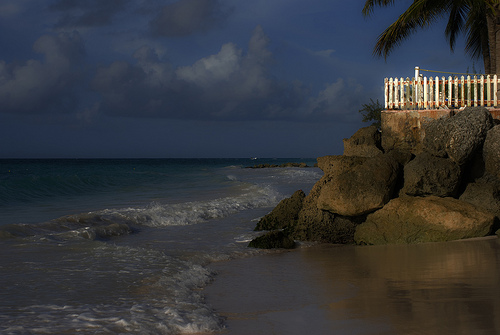Tropical island life – beautiful beaches, lush, green hills, fresh fruit, coffee and rum, and a generally laid-back way of living – that’s what most people think about when they think of the Caribbean.
Of course, there’s always a lot more to these dreamy locations, and some of it is not very pleasant, especially when it comes to living there rather than being a tourist. This doesn’t take away from the beauty of the place; however, it is important to consider these factors beforehand.One consideration when considering moving to the Caribbean is the new set of diseases you’ll have to deal with. The Caribbean is made up of numerous islands, islets, and countries with Caribbean coastlines, so there is considerable variation from one location to the next. For the most part, the Caribbean is quite safe – there are few major outbreaks or epidemics of infectious or other diseases to worry about. However, as with any tropical region, there are the usual tropical diseases (usually borne by mosquitoes) to contend with.
Mosquito-borne diseases
Malaria, dengue, yellow fever, and chikungunya are all concerns in the Caribbean. Malaria is probably the most common, but the numbers of cases of other three are also quite high. Severe cases of dengue are reported to be on the rise, and although chikungunya is relatively new in the region, it seems to be spreading.
Anti-malarial drugs are available, and are advised for many travelers to the Caribbean. You should ask your doctor in advance about whether you should take anti-malarial drugs and if so, which ones. However, remember that these aren’t vaccinations, so their effectiveness is limited, and besides, there are also the other mosquito-borne diseases to consider. It is important to always minimize the risk of mosquito bites – keep doors and windows closed or screened, use mosquito repellents and mosquito nets, and wear loose-fitting clothes that cover most of your skin, especially after sunset.
Food and water-borne diseases
What is colloquially known as “travelers’ diarrhea” affects many visitors to the Caribbean, but people living there long-term tend to develop immunity. It is however still advisable to avoid or at least limit your consumption of street food or food from restaurants where you are unsure about the standards of hygiene. Specific parts of the Caribbean, in particular Haiti and the Dominican Republic, have also had outbreaks of cholera in the last few years, and in some parts of the Caribbean, Hepatitis A is also a concern. Basic precautions can protect you from these diseases too, though – drink only bottled, boiled, or otherwise disinfected water, eat only food that you know has been freshly and hygienically prepared, and avoid things like sushi, cold cuts, and fruits that need to be eaten with the skin. In addition, be strict about personal hygiene, especially if you spend a lot of time outside your house, interacting with lots of people in different places.
One slightly unusual danger is ciguatera poisoning, caused by toxins that are produced by small marine organisms and then pass up the food chain to humans. These toxins are not destroyed or neutralized by cooking or otherwise processing the meat, and there is no way to detect whether or not the fish is toxic by sight, taste, or smell. The best thing to do is to avoid or at least limit your intake of reef fish, and in particular avoid the liver, roe, and head, which is where the toxins tend to accumulate.
Other health risks
In terms of other diseases, leptospirosis, schistosomiasis, and cutaneous larva migrans are known to occur, but these are in specific parts of the Caribbean, and are a risk only to specific groups of people whose activities may expose them to these diseases. Rabies is another concern in some areas – although most Caribbean countries haven’t had a problem with rabies for many years, some rural areas with large bat populations may still be risky.
In addition, living in the Caribbean means you will almost certainly spend some amount of time at the beach and in the water. Here, you need to be aware of the usual seaside health risks – sunburn, jellyfish and other potentially dangerous marine life, and of course drowning.
All that being said, the Caribbean is still a beautiful and rewarding place to live as an expat, provided you take the necessary health precautions.
Have you lived in the Caribbean? How easy did you find it to avoid any health risks?
Can we improve this article? Something wrong? Let us know!

